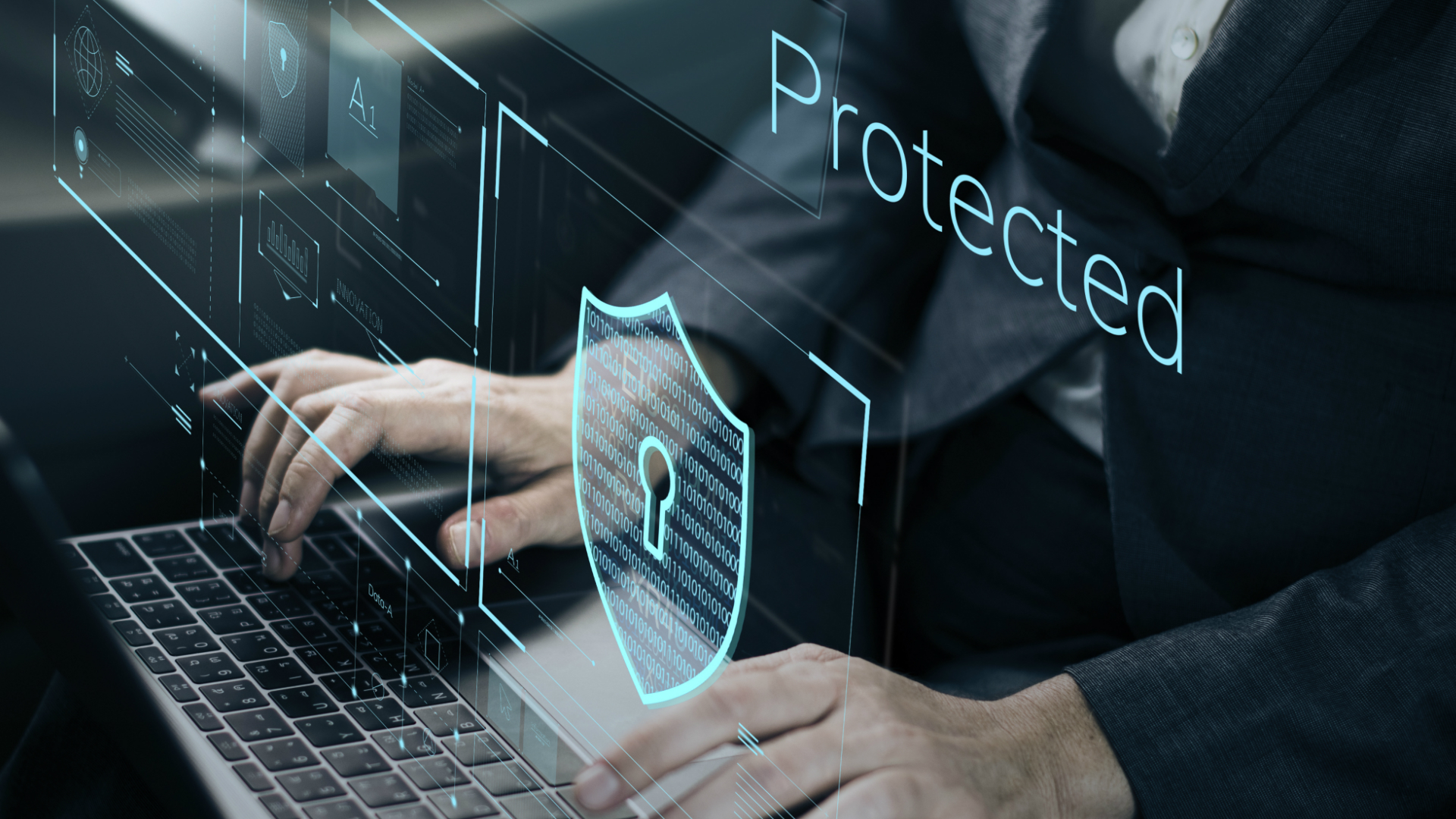What is a VPN and which is the best?
A virtual private network can help safeguard your online privacy - here's how they work and which ones are the best

If you’re concerned about people tracking you online, or simply want to be safe on public Wi-Fi networks, then a virtual private network (VPN) is one of the best ways you can secure your internet connection.
A good VPN service, like ExpressVPN, ensures that no one - not even your ISP - will be able to see anything that you do online.
What is a VPN?
The Week
Escape your echo chamber. Get the facts behind the news, plus analysis from multiple perspectives.

Sign up for The Week's Free Newsletters
From our morning news briefing to a weekly Good News Newsletter, get the best of The Week delivered directly to your inbox.
From our morning news briefing to a weekly Good News Newsletter, get the best of The Week delivered directly to your inbox.
A VPN creates a secure, encrypted connection between your PC or mobile device and a VPN server. This acts as a gateway to the wider internet, shielding all the information that passes through it, thereby protecting your online identity.
Once you're connected, all your web traffic is securely forwarded to the virtual network, so you'll browse the web through the VPN and not your own local network. In other words, your computer will interact with the web as if you're connected elsewhere.
What can I use a VPN for?
One of the most practical purposes of using a VPN is to secure your connection on public or free Wi-Fi networks that are susceptible to hackers. This is especially handy when accessing personal content, like your email or social media, or doing online banking.
Thankfully, modern-day VPNs are fast, so you’ll barely notice any drops in browsing speed if you choose a server located near your location. As a general rule, the further away your server is located geographically, the slower your VPN connection will be. So, for example, if you’re browsing from Spain, then choosing a server in the UK will be faster than choosing one in Singapore.
In recent times, many internet users have become concerned about major corporations and governments tracking their online behaviour and activities. Even your ISP can monitor what you do online, or block you from accessing certain content, but using a VPN will protect you from this.
Technology website Expertreviews highlights that using a VPN service will not only mask your online activity but prevent it from being linked to any personally identifiable information, like your location or your IP address.
What should you look for in a VPN?
The only way that companies can access your information if you use a VPN is by sending a request to your VPN provider for their logs. Thankfully, most reputable VPN services (like ExpressVPN and NordVPN) have a strict no-logs policy. Both services have also been independently audited to prove that they don’t log or store any identifiable user data.
Most VPN services can be used on at least five devices simultaneously, meaning you can protect all the gadgets that you use, including your PC, laptop, mobile devices and even streaming sticks, like the Amazon Fire TV Stick.
That said, there are some good VPN services (like Surfshark) that can be used on unlimited devices, making it a great option for an entire family or even a group of friends. Surfshark VPN is also one of the cheapest VPNs on a long-term plan: its two-year plans costs under £2 per month.
Another feature that all good VPN services share is 24/7 online customer support. This means that you can contact them at any time if you’re having trouble connecting to a particular server, or even ask them which is the best or fastest server to connect to for a particular task, for example streaming or accessing websites abroad.
What are the best VPNs?
Most experts don’t recommend using free VPN services because they might be selling your data or routing other traffic through your devices. While individual monthly VPN subscription plans can seem expensive, these become very affordable if you sign up for multiple years upfront.
For example, ExpressVPN costs £10.22 per month, but this price is halved when you choose its yearly plan. Apart from all of the aforementioned features, it also comes with a 30-day no-questions-asked money-back guarantee, so you have enough time to test-drive the VPN and see if it’s the right one for you.
NordVPN shares the same features as ExpressVPN, including thousands of servers spread generously across the globe, a strict-no-logs policy, simultaneous usage on multiple devices and a 30-day money-back guarantee. The other features that it offers are built-in ad and malware blocking.
Rounding up Expertreviews’ top-four best VPN services are CyberGhost VPN and Surfshark. While Surfshark stands out for its affordable price point and generous unlimited device limit, CyberGhost has a very user-friendly interface that is separated into neat tabs depending on what you’re using the VPN for.
As a general rule, you should always check the small print on all VPN contracts before committing to the service.
Dennis Publishing does not accept liability for the content or services provided by any third party publications or websites we report on. We are not responsible for, and do not endorse, any advertising, products, or resources available from such external resources or websites and shall not be liable for the information, services, or resources made available through such websites. Readers are advised that some uses of a VPN are unlawful and in case of doubt readers are advised to check the applicable law before proceeding.
A free daily email with the biggest news stories of the day – and the best features from TheWeek.com
-
 Political cartoons for March 1
Political cartoons for March 1Cartoons Sunday’s political cartoons include the new normal, the sign of times, and more
-
 Death in Lyon: the growing violence in French politics
Death in Lyon: the growing violence in French politicsTalking Point The death of Quentin Deranque has revealed the violence within the anti-fascist movement, and shown how the Right are ‘shamefully exploiting’ this tragedy
-
 The row over student loans: is the system unfair?
The row over student loans: is the system unfair?The Explainer Millions of graduates have been left with hefty student loans, at high interest rates
-
 The power of anonymous data
The power of anonymous datafeature The application of anonymous data can be a huge benefit to businesses looking to tailor services more closely to customer behaviour
-
 The guide to workplace security
The guide to workplace securityfeature The dos, the don’ts and everything in between – effective workplace security is the responsibility of every individual in the business
-
 How big data will change our lives
How big data will change our livesfeature Big data can be seen as daunting, but with proper handling it could be the most significant opportunity for people and business this century
-
 Building connectivity: How 5G will change the way we live and work
Building connectivity: How 5G will change the way we live and workfeature The next generation of mobile data is on the horizon and with it, the potential to revolutionise our everyday lives
-
 A day in the life of a smart city dweller
A day in the life of a smart city dwellerfeature How a truly connected life could spell the end of traffic jams, potholes and the weekly shop
-
 Empowering people to build a better business
Empowering people to build a better businessfeature How can people and tech work in unison to create a better business?
-
 What's driving the digital work revolution?
What's driving the digital work revolution?feature The world of work is evolving so quickly, but are we underestimating the role of people?
-
 The evolution of people in the workplace
The evolution of people in the workplacefeature People are the most important asset for any business, and they need the right tools and platforms to help them flourish